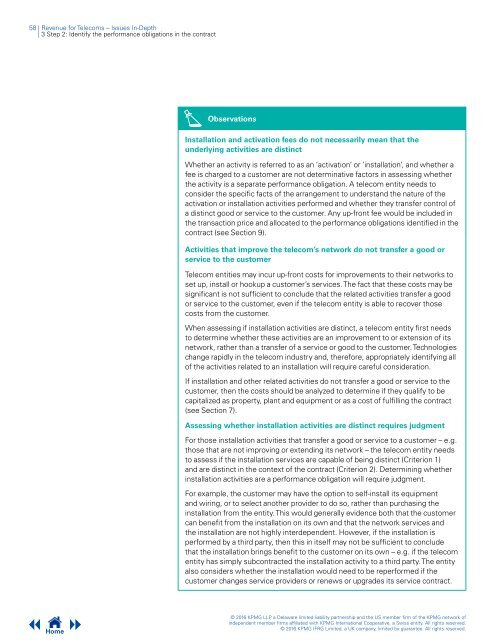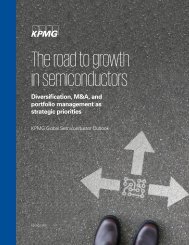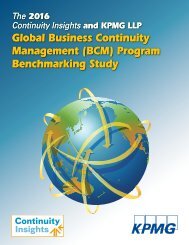Revenue for Telecoms
2cdncba
2cdncba
Create successful ePaper yourself
Turn your PDF publications into a flip-book with our unique Google optimized e-Paper software.
58 | <strong>Revenue</strong> <strong>for</strong> <strong>Telecoms</strong> – Issues In-Depth<br />
| 3 Step 2: Identify the per<strong>for</strong>mance obligations in the contract<br />
Observations<br />
Installation and activation fees do not necessarily mean that the<br />
underlying activities are distinct<br />
Whether an activity is referred to as an ‘activation’ or ‘installation’, and whether a<br />
fee is charged to a customer are not determinative factors in assessing whether<br />
the activity is a separate per<strong>for</strong>mance obligation. A telecom entity needs to<br />
consider the specific facts of the arrangement to understand the nature of the<br />
activation or installation activities per<strong>for</strong>med and whether they transfer control of<br />
a distinct good or service to the customer. Any up-front fee would be included in<br />
the transaction price and allocated to the per<strong>for</strong>mance obligations identified in the<br />
contract (see Section 9).<br />
Activities that improve the telecom’s network do not transfer a good or<br />
service to the customer<br />
Telecom entities may incur up-front costs <strong>for</strong> improvements to their networks to<br />
set up, install or hookup a customer’s services. The fact that these costs may be<br />
significant is not sufficient to conclude that the related activities transfer a good<br />
or service to the customer, even if the telecom entity is able to recover those<br />
costs from the customer.<br />
When assessing if installation activities are distinct, a telecom entity first needs<br />
to determine whether these activities are an improvement to or extension of its<br />
network, rather than a transfer of a service or good to the customer. Technologies<br />
change rapidly in the telecom industry and, there<strong>for</strong>e, appropriately identifying all<br />
of the activities related to an installation will require careful consideration.<br />
If installation and other related activities do not transfer a good or service to the<br />
customer, then the costs should be analyzed to determine if they qualify to be<br />
capitalized as property, plant and equipment or as a cost of fulfilling the contract<br />
(see Section 7).<br />
Assessing whether installation activities are distinct requires judgment<br />
For those installation activities that transfer a good or service to a customer – e.g.<br />
those that are not improving or extending its network – the telecom entity needs<br />
to assess if the installation services are capable of being distinct (Criterion 1)<br />
and are distinct in the context of the contract (Criterion 2). Determining whether<br />
installation activities are a per<strong>for</strong>mance obligation will require judgment.<br />
For example, the customer may have the option to self-install its equipment<br />
and wiring, or to select another provider to do so, rather than purchasing the<br />
installation from the entity. This would generally evidence both that the customer<br />
can benefit from the installation on its own and that the network services and<br />
the installation are not highly interdependent. However, if the installation is<br />
per<strong>for</strong>med by a third party, then this in itself may not be sufficient to conclude<br />
that the installation brings benefit to the customer on its own – e.g. if the telecom<br />
entity has simply subcontracted the installation activity to a third party. The entity<br />
also considers whether the installation would need to be reper<strong>for</strong>med if the<br />
customer changes service providers or renews or upgrades its service contract.<br />
Home<br />
© 2016 KPMG LLP, a Delaware limited liability partnership and the US member firm of the KPMG network of<br />
independent member firms affiliated with KPMG International Cooperative, a Swiss entity. All rights reserved.<br />
© 2016 KPMG IFRG Limited, a UK company, limited by guarantee. All rights reserved.







